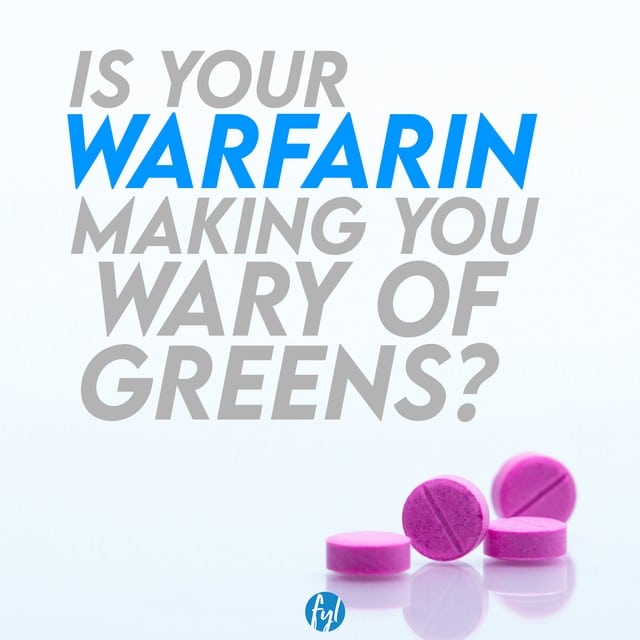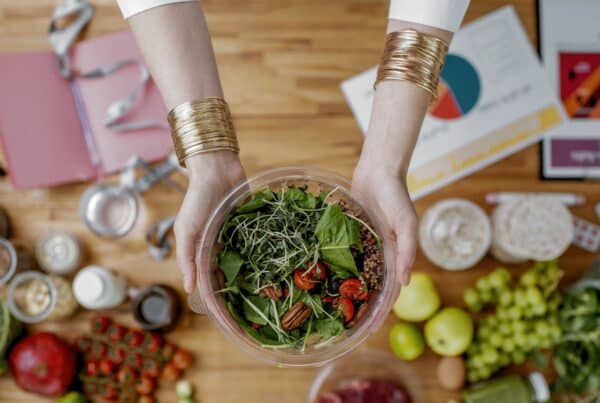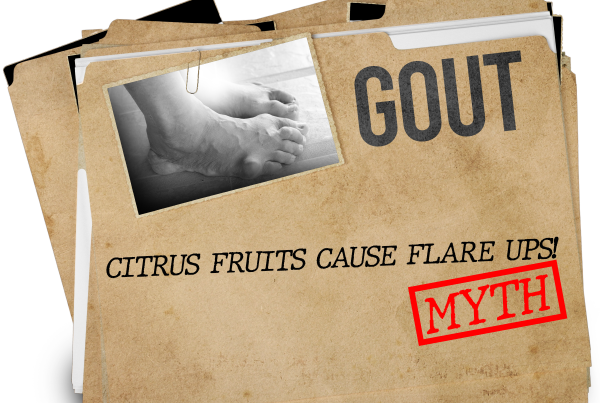Warfarin is a drug used to help prevent the formation of blood clots, which can cause heart attacks and strokes. It is commonly prescribed for people who suffer from atrial fibrillation, pulmonary embolism and deep vein thrombosis. It works by thinning the blood and inhibits the liver’s ability to produce clotting factors using Vitamin K.
Vitamin K plays an important role in blood clotting and there is a long-held belief that foods high in Vitamin K should be avoided or limited when undergoing warfarin therapy as they may interfere with Warfarin’s ability to thin the blood and prevent clots. In recent years this advice has changed to including consistent amounts of vitamin K rich foods in the diet, rather than avoidance of these foods. Unfortunately, there is still a lot of confusion and misinformation circulating in the medical profession around whether foods rich in Vitamin K are safe for people taking warfarin and how much they should consume.
INR and Vitamin K
If you’re taking Warfarin, then you most likely would have heard the term INR (international normalized ratio). It is important your INR is monitored to ensure that the warfarin is working within a therapeutic range, which allows it to prevent blood clotting, while also avoiding the risks of haemorrhage. However, anticoagulation stability is often a challenge due to the narrow therapeutic range of the drug.
Recent trials show that Vitamin K plays an important role in assisting with long term stability of anticoagulation therapy. This is helping to debunk the myth that vitamin K rich foods should be avoided while undertaking Warfarin therapy. A recent RCT study has shown that including dietary vitamin K at or above 150ug/day actually increases INR stability. The treatment group were encouraged to include foods high in Vitamin K as well as using cooking methods which maximised the vitamin K levels of the food, whereas the control group did not receive information on how to increase their vitamin K intake. At the end of the study, 50% of the patients in the treatment group had an INR within the recommended therapeutic range, compared with just 19% of the control group (Ferland et al., 2019).
What’s the Evidence?
This study looked specifically at individuals who had a history of INR instability, so the impact on someone who has a stable INR taking Warfarin may not be the same. However, there are a range of green vegetables which do not have high levels of vitamin K that you should be including in your diet. Research shows that the more variety in the diet, the more likely an individual will have a diverse range of gut bacteria, and we know that having diverse gut bacteria is linked to a range of health benefits including improved mood, immunity, and a decreased risk of developing some chronic health conditions.
How Much is Okay?
Foods high in Vitamin K include:
| Food | Amount | Vitamin K (mcg) |
| Kale | ½ cup | 531mcg |
| Spinach | ½cup | 445mcg |
| Broccoli | ½cup | 110mcg |
| Brussel sprouts | ½cup | 110mcg |
The most important thing to consider when it comes to Vitamin K and taking warfarin is that the intake of foods rich in Vitamin K should be consistent, rather than consuming large amounts one day and avoiding green leafy veg the rest of the week. So, instead of eating half a plate of spinach one night, try to include small amounts of green leafy veg most days of the week. For example, ¼ cup of cooked spinach. When a consistent intake of green leafy veg is consumed, it is least likely to have a negative impact on INR.
It’s also important to remember that there are plenty of green veggies that aren’t high in Vitamin K that you can still enjoy, but unfortunately are often avoided by individuals taking Warfarin. These green vegetables provide the body with a range of vitamins and minerals including folate, vitamin A and vitamin C, and you may be missing out on some of these if excluding a lot of different vegetables from your diet.
Some green vegetables not high in Vitamin K include:
- Asparagus
- Green beans
- Cabbage
- Zucchini
Looking for more nutrition advice to better your health? Check out our other blogs or get in contact with one of our dietitians today!







